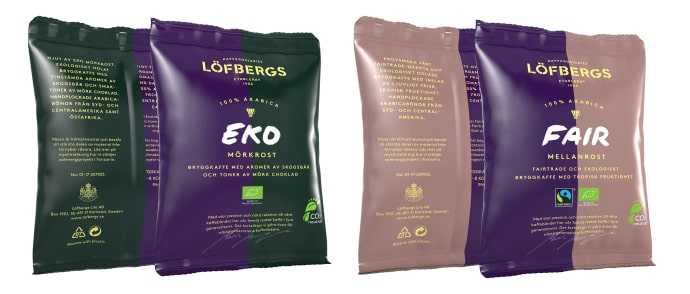KARLSTAD, Sweden – Löfbergs was the first to remove aluminium from the coffee packaging in Sweden in 1993. The company now wants to replace the oil-based plastic with a plant-based alternative.
The family-owned coffee roaster is therefore trying a new packaging mainly made of sugar canes.
If the tests are successful, Löfbergs hopes to be able to replace all fossil plastic in their packaging by 2020.
– This is a first step towards completely renewable packaging. We will hopefully contribute to a climate-smart solution that other can imitate, says Lars Appelqvist, CEO at Löfbergs.
CO2 savings
The plant-based packaging reduces the carbon emissions with about 10%. It is recyclable and has the same protective properties as the oil-based plastic, which is important as coffee is affected by light and oxygen.
– We will now make sure that the production works and that the packaging meet our demands. This is a slightly more expensive solution, but we believe that the costs will decline in the long run, says Lars Appelqvist.
Löfbergs climate compensates the packaging to 100% through a solar energy project in Tanzania.
Responsibility from bean to cup
Today, Löfbergs works with sustainability throughout the value chain, from bean to cup. Much of the work is done in the producing countries, where the climate impact of coffee is greatest. But Löfbergs is doing a lot at home too, not least when it comes to packaging.
In 1993, Löfbergs was first in Sweden with aluminium-free coffee packaging, and the company launched plant-based capsules for the Nespresso® system in 2016. Tests are currently in progress to replace the oil-based plastic with a renewable alternative.
– We want to reduce our climate footprint with 40%; we have to work with everything, big and small. Our vision is to be the most sustainable coffee company in Europe, says Lars Appelqvist.















